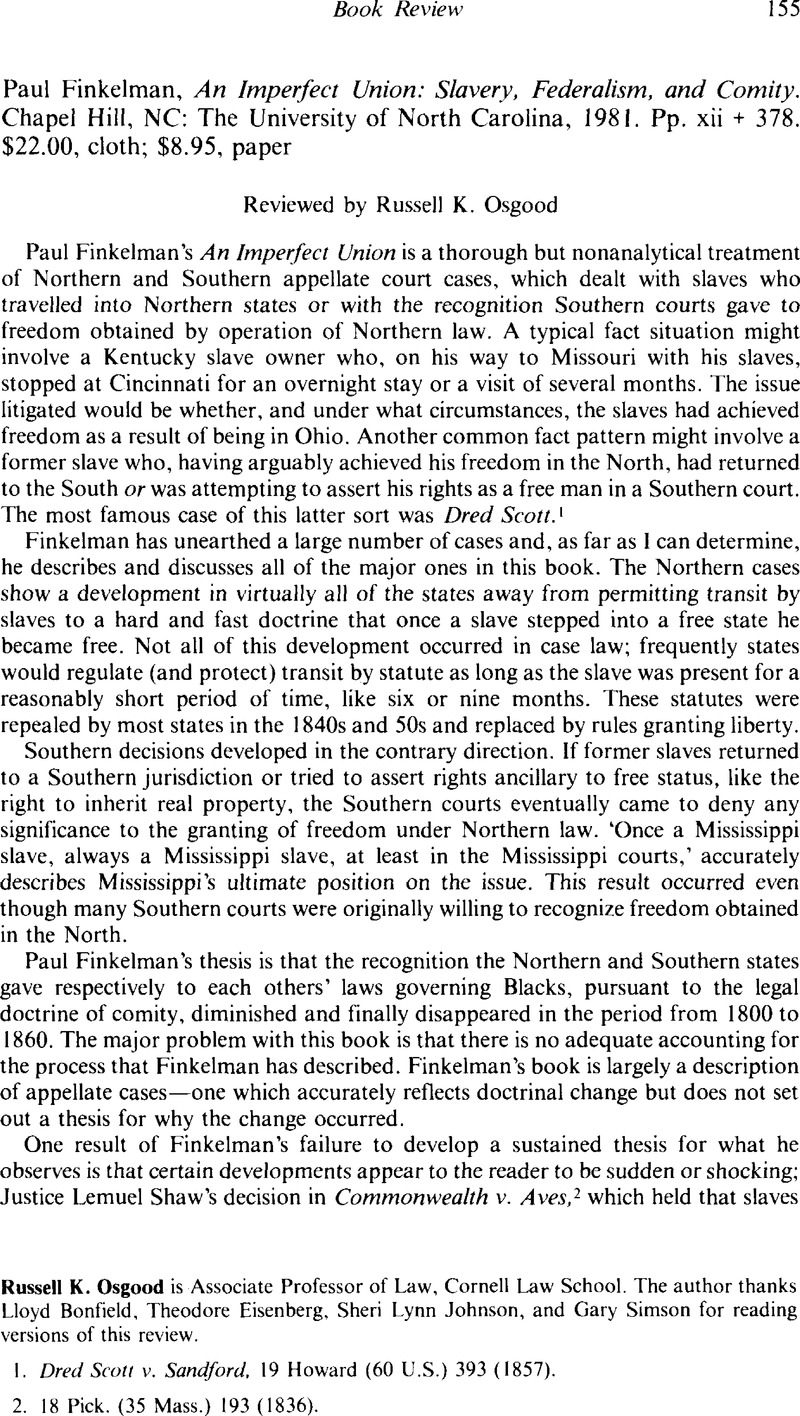No CrossRef data available.
Article contents
Paul Finkelman, An Imperfect Union: Slavery, Federalism, and Comity. Chapel Hill, NC: The University of North Carolina, 1981. Pp. xii + 378. $22.00, cloth; $8.95, paper
Published online by Cambridge University Press: 28 October 2011
Abstract

- Type
- Book Reviews
- Information
- Copyright
- Copyright © the American Society for Legal History, Inc. 1983
References
1. Dred Scott v. Sandford, 19 Howard (60 U.S.) 393 (1857).
2. 18 Pick. (35 Mass.) 193 (1836).
3. Somerset v. Stewart, Lofft 1 (1772) (98 E.R 499) is thought to hold that since slavery could only exist by virtue of positive law, a slave who stepped into England became free automatically.
4. Cover, R. M., Justice Accused: Antislavery and the Judicial Process (New Haven, 1975Google Scholar).
5. Tushnet, M. V., The American Law of Slavery 1810–1860: Considerations of Humanity and Interest (Princeton, 1981Google Scholar).




